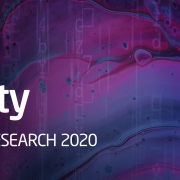What is Robotic Process Automation (RPA)?
Why would businesses adopt Robotic Process Automation (RPA)?
RPA helps with office functions and focuses on one workflow and has a robot to specialise in this. However, this is not a physical robot. Rather, it is through data. The benefits include improved accuracy, more time for the team to be creative and innovative, improved throughput and data capture. Additionally, the benefits are realised quickly, there is no disruption to underlying systems and can be highly scalable.
Who is interested in Robotic Process Automation (RPA)?
The finance sector with compliance and filing requirements have adopted RPA. Numerous back office functions are now completed by RPA. Additionally, RPA would be prime for retail industry and e-commerce, the insurance industry with many claim documents, and repetitive tasks, such as employee absences and ex enses, in HR.
Should you consider Robotic Process Automation (RPA)?
It does not work or gain knowledge independently but can be programmed to complete a certain task. RPA is cheaper than artificial intelligence or ERM software. It could be considered by an organisation who is looking to automate repetitive, time critical, error prone and digital processes.
Robotic Process Automation (RPA) Businesses
There are numerous global RPA service providers, including Deloitte and Cognizant.
Numbers for AI this year compared to previous years
- In 2020, of the respondents who mentioned that they were going to deploy emerging technologies in the future, 10% of respondents reported that their organisation is going to implement RPA.
- In 2019, 8% were actively using RPA, 8% were planning on deploying RPA in the next 12 months, 25% have longer term interest and 60% had no interest.
- In 2018, 10% of respondents were actively using the technology, 5% were planning the deployment in the next 12 months and 32% of respondents had long term interest.
RPA Glossary
RPA = “occurs when basic tasks are automated through software or hardware systems that function across a variety of applications, just as human workers do”
Data = “facts or statistics collected together for reference or analysis”
Machine Learning = “the process that allows software robots and AI to learn new processes through pattern recognition rather than needing to be individually and precisely programmed for each new situation”
Workflow Automation = “using RPA technology to automate steps in manual or routine business tasks to improve day-to-day practices, make employees more efficient, and allow humans to focus on higher return work”
Proof of Concept = “a kind of test trial for automation software, meant to highlight its limitations”











Leave a Reply
Want to join the discussion?Feel free to contribute!